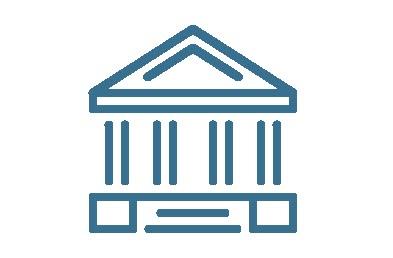Authored by Omid Malekan via Medium.com,
Maker Shows The Way
The 2008 financial crisis had no single cause, and instead resulted from an amalgamation of factors that built up over time into one terrifying crescendo. They ranged from financial engineering to government policy, along with the twin tendencies of greed and fear. Many of those issues have been addressed since, but the opacity of the banking system remains, partly because there is no way get rid of it.
It’s hard for big companies to be transparent about their health because even insiders sometimes don’t know. The most terrifying moments of the crisis revolved around this hard truth. Banks have always had strict reporting requirements, and are even more closely watched today. But consolidation and the ancient systems most financial institutions still use make it hard to gauge their exact health – with one exception.
Welcome to the the world’s first fully transparent bank.
MakerDao is a blockchain project where users put up an asset as collateral and borrow money against it. It’s a decentralized bank that utilizes modern technology to replicate the oldest financial transaction in history — borrowing cash against an existing asset, an activity anyone who’s taken out a mortgage or bought stocks on margin is familiar with.
The project currently only accepts the native currency of the Ethereum blockchain as collateral, and lends a digital currency pegged to the dollar called Dai. Since it resides on a public blockchain, everyone can watch in real time as users all over the world put up collateral, borrow money, repay their loan with interest or, should the value of their collateral fall too much, get liquidated. Bankers and underwriters are replaced with smart contracts executing known rules. While every other bank in the world tells you what their lending practices are, Maker will show you.
Despite the negative associations of blockchain technology in regulatory circles, it offers a form of radical transparency that doesn’t exist elsewhere. The public knows more about the status of Maker than your typical CEO may about his own company. Despite having no official regulator, Maker is arguably the most regulated financial entity on earth, as anyone can scrutinize every loan. So while traditional banks require an army of employees, auditors and regulators to estimate a figure like their collateral ratio, Maker yields the exact number as of the next block. (398% as of block #7507738.) You can’t make this stuff up. Literally.
For now, MakerDao is relatively tiny, warehousing $356m in collateral and lending $89m against it. The projects rapid growth has led to more borrowing and stablecoin generation than there is currently demand for, leading to Dai occasionally breaking below the $1 soft peg. The community has tried to resolve this situation by raising the system’s interest rate — in the same fashion that a central bank might raise rates to defend its currency. Unlike a simpler fiat-backed stablecion, Dai is prone to drifting from its peg due to liquidity flows. But also unlike a fiat-backed stablecoin, Dai is truly decentralized and totally uncensorable.
In lieu of executives, Maker’s governance is handled through a digital token called MKR, a pseudo-equity stake in the success of the project. Ownership of that token gives anyone the right to vote on decisions like changing the interest rate. To incentivize responsible banking, MKR owners get to collect the interest payments the system generates. But to make sure that they don’t suffer from the same greed-fueled lowering of lending standards that contributed to the financial crisis, MKR owners are also buyers of last resort should the collateral backing the loans prove insufficient.
Just imagine: a bank where executive compensation, and not taxpayer funds, is used for a bailout.
Although legacy banks talk about inclusion and reaching the unbanked, they are limited by the laws of physics. The manual work of determining credit worthiness and issuing a loan has a minimal cost that makes the activity unprofitable for smaller loans. Maker’s automated processes on the other hand are value agnostic. Smart contracts don’t care if you want to borrow one dollar or one million dollars. They also don’t care, and don’t even know, about your age, gender or race. To the blockchain, we are all just numbers.
For all the controversy surrounding blockchain and its ill-begotten reputation as appealing primarily to criminals, it is in many ways a regulator’s dream come true. It replaces regulations written in thousand page bills and enforced by underpaid bureaucrats with elegant code. Although there is an open question of whether Maker’s governance token violated securities laws when it was issued, there is no doubt that its banking features are more compliant than any legacy bank can be — so much so that even regulators are starting to take notice. Just recently, the Chairman of the CFTC speculated that had this technology been around during the 2008 crisis, the government could have had a more effective response.
Maker is just one of a brand new class of “decentralized finance” projects that are starting to sprout on public blockchains. They include lending, money markets and even market making. Most are predicated on a simple question: other than being a trusted middleman, is there anything special about the services provided by a bank? If the answer is no, then the service can — and probably will — be disintermediated, with the key requirements of trust and liquidity being provided by a public ledger.
The basic human needs of trading value for time or security for profit has not changed for thousands of years, but how institutions go about providing them has. Blockchain enabled decentralized finance is the cutting edge of that evolution. It is unlikely that the transition will be as smooth as the faithful would like to believe, but the potential is large enough that even the biggest skeptics should pay attention.
via ZeroHedge News http://bit.ly/2G5cFhw Tyler Durden
